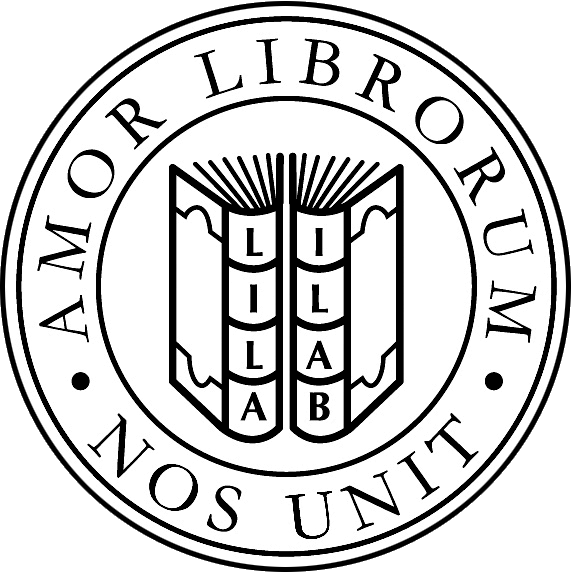Dealer in Rare and First-Edition Books: Western Americana; Mystery, Detective, and Espionage Fiction
United States Arrest Warrant, United States Vs. Perry Brewer And Ed Reed For Larceny. George P. Lawson, Deputy U. S. Marshal At Fort Smith, Arkansas, April 23, 1895, Arrest Warrant And Expense Voucher For Serving The Warrant
DEPUTY U. S. MARSHAL GEORGE P. LAWSON
Other works by DEPUTY U. S. MARSHAL GEORGE P. LAWSONPublication: Written By Deputy U S Marshal George P Lawson, 1895, Fort Smith
First edition. 13 7/8" x 8 1/4" one sheet, folded 3 1/2" x 8 1/4." April 23, 1895, arrest warrant expense voucher signed by George P. Lawson, Deputy U.S. Marshal at Fort Smith, Arkansas, for executing an arrest warrant for Perry Brewer and Ed Reed near Wagoner, Indian Territory, who were charged with larceny in the Indian Country. Lawson sometimes served as hangman for "Hanging Judge" Isaac Parker, having hanged twelve men sentenced to be executed by Parker. Deputy Lawson helped track-down and kill "Dynamite Dick" Clifton of the Doolin Gang on November 7, 1897. Document also mentions "Commissioner" James Brizzolara, a leading citizen of Fort Smith who had once fought with Garibaldi in Italy and was involved in several duels including one with George R Phelan at Memphis where he was sounded. He was appointed United States Circuit Court Commissioner for the Western District of Arkansas on June 12, 1878. Further biography found in "HELL ON THE BORDER; HE HANGED EIGHT-EIGHT MEN. A HISTORY OF THE GREAT UNITED STATES CRIMINAL COURT AT FORT SMITH, ARKANSAS, AND OF CRIME AND CRIMINALS IN THE INDIAN TERRITORY, AND THE TRIAL AND PUNISHMENT THEREOF BEFORE HIS HONOR JUDGE ISAAC C. PARKER, "THE TERROR OF LAW-BREAKERS" ... by S.W. Harman (1898). As the frontier moved west, the U.S. Marshals went with it to uphold the law in remote, sparsely populated territories. The Federal District Court for the Western District of Arkansas was created in 1851 and held jurisdiction over 13 Arkansas counties and all of the Indian Territory. During the early 19th century, the federal government supported a policy of voluntary and forced removal of Indian tribes from lands in the eastern United States, to land in the west. Much of what is today the state of Oklahoma was then called the Permanent Indian Territory. Each tribe had tribal courts, which adjudicated disputes among Indians. If a white person was involved in a dispute with an Indian, however, the jurisdiction was placed with the federal courts. Later, some capital crimes, such as murder and rape, were made the exclusive jurisdiction of the federal courts. This made for a difficult situation, with criminals taking advantage of the confusion caused by the jurisdictional questions. Particularly after the Civil War, the Indian Territory became a haven for outlaws and criminal gangs. This was compounded by corruption and incompetence in the affairs of the court itself. In 1875, President Ulysses S. Grant appointed Isaac C. Parker to the federal judgeship in which he would become famous. The court had moved to Fort Smith in 1872, occupying the former enlisted barracks at the recently abandoned military post. Parker's predecessor had resigned in 1874 rather than be impeached. Judge Parker was charged with cleaning up the affairs of the court and bringing some semblance of order to the area, whose affairs were now a national scandal. Over 200 deputy marshals were attached to the Federal Court for the Western District of Arkansas. Some were Civil War veterans. Others had been cowboys or ranchers. Most of them knew a great deal about the Indian Territory and were independent, self-reliant, and willing to take great risks. Their headquarters was Fort Smith, a dusty, growing town right on the border with the Indian Territory. It was a settlement of about 5,000, which did a thriving business in saloons and bordellos, catering to the cowboys, traders, railroad men, and river boat crews that worked the area. The Western District court was responsible for the enforcement of federal law in 74,000 square miles of territory. A set of instructions issued by the U.S. Marshals office in Fort Smith give an idea of the crimes and problems involved. "U.S. Deputy Marshals for the Western District of Arkansas may make arrest for: murder, manslaughter, assault with intent to kill or to maim, attempts to murder, arson, robbery, rape, bribery, burglary, larceny, incest, adultery ... These arrests may be made with or without warrant first issued and in the hands of the Deputy or the Chief Marshal. The marshals did not generally travel in large posses. Either individually or in small groups they would, "go on the scout," into the Indian Territory, for weeks or months at a time, sometimes taking a wagon rigged as a holding cell. They looked for stolen horses, for suspicious travelers, for stills and contraband whiskey, and for wanted men on the run. They carried warrants, or wired Fort Smith and requested them. Deputy marshals were paid at the rate of six cents per mile traveled, and $2.00 per arrest or served process. Of the total amount collected, the U.S. Marshal received 1/4 of that amount. Some historians have estimated that an average deputy marshal was lucky to make $500.00 a year; not much money, even in those days. They were also personally responsible for the burial of a suspect killed in the process of arrest. So, while the deputies seldom went looking to kill the suspects, the fact that the penalty for resisting arrest was only a year in jail, meant that outlaws had little to lose in resisting. Over 100 deputy marshals were killed in the line of duty during Judge Parker's tenure, a testament to the difficulty of the job and the bravery and ability of the marshals. Despite these limitations, conscientious deputy marshals such as Heck Thomas, Bill Tilghman, Bass Reeves, Addison Beck and others, did much to curb the disorder rampant in Indian Territory. Carrying Colt 45 pistols and Winchester Rifles, sawed-off shotguns and knives, these men enforced the law and established the idea of justice on the frontier. They were a mixed lot, some highly moral, some as at home on the outlaw side as the side of the law. They reflected the independence and spirit of the west. And, the United States Deputy Marshals at Fort Smith remains one of the most colorful chapters of the American story. (from the Fort Smith National Historic Site website). Small closed-hole in upper blank margin, else fine condition. Three horizontal folds,
Inventory Number: 53248











